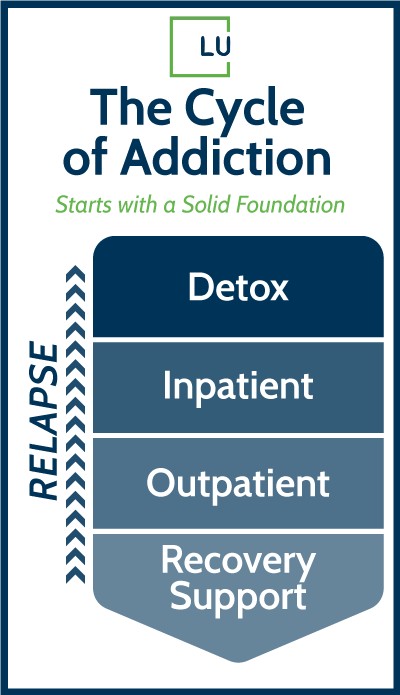An In-depth Look at Addiction
Before one can understand the cycle of drug and alcohol rehab and relapse, it is pertinent to understand addiction itself fundamentally. Addiction is not a character flaw, it is a neurological disorder, a chronic disease that affects the brain’s reward, pleasure and motivation system. The brain of an addicted person is chemically and psychologically different from that of a non-user. It does not just spring up at once but occurs over a series of stages. By the time a user realizes this, they are already in the firm grip of addiction and the cycle is a regular habit. Understanding how this cycle perpetuates is the key to breaking it. When this cycle is broken and the person is living a healthy life, free from substance abuse, then they are in addiction recovery. Unfortunately, it is very difficult to break it without professional help and outside intervention from drug and alcohol addiction rehabilitation programs.

Stages of the Cycle
Once the addict makes lifestyle changes, abstaining from abuse, and substitute their dysfunctional life for a clean one, there’s a real possibility of breaking the cycle. How does addiction recovery happen? Before they even begin considering change, an addict is said to be in pre-contemplation. At this point, they haven’t stopped abusing the drug. When they begin to consider quitting, maybe as a passing thought, and slowly start to mentally prepare, they are in contemplation and preparation stages. Although they are still abusing the substance, they often experience feelings of remorse, shame, and tremendous guilt after. They always resolve never to use it again, though they still end up doing so. Many people consider it the beginning of addiction recovery when the addict begins exploring ways of treatment and counseling. They take action and start attending drug and alcohol rehab programs and self-help groups.
Breaking the Cycle of Addiction
It’s important to note that relapse can occur at any stage of recovery. To ensure successful addiction rehabilitation, continuous aftercare, therapy and ongoing support from groups is a necessary step. The most effective drug and alcohol rehab program should include psychosocial counseling, medication, education peer-group therapy, relapse prevention plans, and aftercare techniques. Cognitive and behavioral therapies help the person to develop tools for managing this recurring part of the condition. Through experienced individualized help, addicts can learn to interrupt the cycle and move on with their lives. With motivation and sustained abstinence, they can fully recover, restore their relationships, and continue to lead much happier lives.